Madness, Mayhem and Transformation.
My Recovery Story (the short version)
Download pdf
This is my recovery story. I am working on a longer version, and I suspect it will keep evolving over time because recovery never really ends. But I hope this gives you a sense of where I come from. During my story I talk about the factors that contributed to my recovery, and also those things that got in the way.
Please note that parts of this story may be triggering for some people – I mention both trauma and self-harm (but not in explicit detail).
So if they didn’t ask, I certainly wasn’t going to speak up about the neglect and violence in my early childhood, or the bullying at school, and certainly not about my most shameful experience of abduction and rape at the age of 13. I was just mad, that’s all, and there wasn’t anything I could do about it.
While today I enjoy a wonderful career working in mental health, I have also been an ‘on again, off again’ consumer of mental health services since 1999.
Before my madness was officially diagnosed, I spent my twenties working in the corporate sector, as a successful young high flyer who ‘got things done’. But on the inside I was utterly miserable, for years. What I like to call ‘functionally fucked up’.I quit the big time and went off to art school, literally looking for inner peace, but within three months I was locked up in a psychiatric ward. Time for creative contemplation did not reveal what I had been hoping for.
Over the years I’ve received eight different diagnoses: schizophrenia, depression, schizo-affective disorder, borderline, anxiety, bipolar, depression with psychotic features and most recently Post Traumatic Stress Disorder (PTSD). I’ve also experienced about ten major hospitalisations, years of heavy medication, and many involuntary treatments including Electro-Convulsive Therapy (ECT).For a long time I eked out a survival on the disability pension, sedated to the eyeballs and really believing that I would never recover. I developed an ‘olanzapine’ belly, stopped showering regularly, and gave up.
For years I believed the bio-medical view that I had a chemical imbalance in my brain, along with damaged genetics (my mother and brother both had mental health issues as well). No-one in psychiatry ever thought to look for some meaning behind my madness, and so I believed there was none. Unfortunately this left me a helpless victim of my chemistry and the mental health system – after all, what did I know about brain chemistry?
Despite all this, I have made progress along a recovery journey. Actually I prefer the word ‘transformation’ to ‘recovery’. To me, recovery implies getting back something I’ve lost, and I really don’t want to get my past back. I’ve been there, and it sucked. It’s why I went mad. I want to learn from my past and use it to transform my life into something new and better. But I do use the word recovery or no one knows what I’m talking about.
I am still living this process of transformation. I think it’s a lifelong journey, not a station you arrive at. But I would break up my transformation so far (or recovery if you must) into the stages below. Some of these stages overlap, and most of them I have to revisit from time to time. In describing these stages, I have done my best to briefly reflect on what really helped me to transform my life, and what got in the way.
Accepting ownership and responsibility, reclaiming an identity
- Workers telling me that I was responsible for my own recovery, that no one could do it for me, and that there was no magic pill.
By this I don’t mean we should go and tell people to ‘buckle up and take responsibility for their crap lives’, or to ‘get over it’. This is not helpful, it’s mean, and when people said this kind of stuff to me I wanted to punch them. What I mean is providing services in empowering ways, not creating dependencies, and workers not thinking they should have the answers (because you can’t, they’re hiding inside of us).
- Being asked what kind of support and treatment I wanted, having my options properly explained to me, and my choices respected.
- Taking on the responsibility for making choices and doing recovery work (well, not all the time, but a lot).
And by the way, I didn’t wake up one morning and decide to simply become responsible for my recovery. It was very slow and gradual process, and it was painful and difficult. I needed guidance, role models, skills and support.
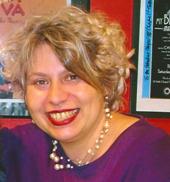
Being a keyworker brought incredible meaning to my life – for the first time. It was my own keyworker, Kaz Mitchell, who pushed me find this dream, and then helped me in a myriad of practical ways to make it a reality.
- Being encouraged, even pushed, to dream a future for myself (“Thank you Kaz – you are amazing!”).
- Once I had found a dream, having it validated and encouraged and supported to become real – and not being told it was ‘unrealistic’.
Workers must believe in us and in our potential. And if you can’t, please find a new career because your attitudes are doing us harm.
- Getting a job – someone taking a chance on me, and providing some extra supports to make it work.
Learning and using coping skills
- Learning about how emotions work, and that there are lots of things I can do about them and with them.
- Learning many, many, many different coping skills, and being supported to practice them in my life.
- Workers being willing to practice coping strategies with me, and being honest when they found it hard too.
When workers are willing to join us for part of the journey, and let down some of the unnecessary boundaries, it forms a powerful learning connection. As workers you can be great role models for us, and coaches and mentors, too. And we like to know that you’re not perfect and that you also feel pain and confusion sometimes – this helps us to trust you, and know that you are speaking to us as fellow human beings.
- Being reminded that learning an emotional coping skill is much, much harder than learning to ride a bike – so we gotta stick at it, and get back on when we fall off.
Learning about mindfulness and acceptance really shifted my views in powerful ways (although for a while I fought against this way of thinking with all I had).
I offer a caution about coping strategies. Once I had developed a bloody good set of them, most people decided I was recovered, including me. And I guess by many measures I was: I was working, studying, living independently, not using psych services, off medications. ‘Hunky dory’ (on the surface). Coping skills are GREAT. But used alone, they never helped me deal with WHY I had gone mad in the first place. They just taught me how to ‘hang on’, in socially acceptable ways. Do not stop at this step, or you’ll never get to see the wonderful views at the top of the stairs.
Caring for others, and others caring for me
- Friends and family who stayed the distance with me. Communities of peers who ‘got me’.
I lost a few friends along the way, I guess it’s inevitable and I don’t blame them; I gave up on a few friendships myself. But having people around who care makes all the difference. This is why social activities in recovery services are so important: because many people have no-one, and as humans we need to be part of a tribe.
I worry that with the increase in outreach services replacing centre-based services, and with so many drop-in centres closing down, that we will lose many important communities and connections which are absolutely vital to recovery. I really don’t believe that recovery can happen without human connection (and connection doesn’t mean just having lots of workers).
- Caring for my Mum in her final months, and getting a new perspective on life.
- Being told how my pain was affecting others, and taking responsibility for that
I’m aware that some may find this idea controversial. But for me, when friends and family expressed anger with me (in assertive, respectful ways), for attempting suicide for example, I felt incredibly guilty. And while guilt is not nice, and my pain wasn’t my fault, and suicide, at the time, was the only choice I could think of, the guilt was still appropriate because my actions had caused pain to people I love. Their anger helped to hold me in other times of crisis because I didn’t want to hurt them again. It helped to keep me safe. We need to speak the truth.
Getting a life worth living – my magnificent obsession
- Doing things that make my heart sing.
- Taking on missions to change the world (well, the mental health system anyway), and going for it.
Let’s be clear: I am not a role model for a healthy work-life balance. I work far too much, and far too intensely. This impacts on my mental health sometimes, and my physical health often. And this is something I want to work on shifting over time.
But even though my life balance is crap, I do benefit enormously by my life having such meaning. I am passionate about the work I do, care deeply about systemic mental health reform and supporting individuals through their journeys. And, to be honest, I simply don’t have time for a breakdown now, there is too much to do!
- Surrounding myself with others who have similar dreams, and learning from those who have come before me.
Understanding the reasons behind my madness
- Discovering that madness has meaning, and finding support to make sense of my own life
This has not been easy to find as our current mental health system is still dominated by bio-medical perspectives that view madness as essentially meaningless. It isn’t. And the search for meaning was imperative for my deeper recovery work.
- Having space to go a bit potty from time to time, because it’s part of the journey and it has value. I like to think I’m diverse and eccentric. My colleagues, friends and family may have different opinions, but they can go and write their own blasted stories.
Addressing past trauma and shame
- Finding the words and speaking about my difficult experiences of neglect and violence, bullying, abduction and rape.

My Mum remarries, one year before I run away from home. At this age I was being bullied, and experiencing huge upheavals at home (age 12).
There are reasons why we go mad, and trauma, adversity, life difficulties, whatever you want to call it, play a big part. No one ever seems to want to talk about trauma, it’s the elephant in the psych ward. Not talking may make the system feel more comfortable about risk. But it doesn’t help us.
- Unravelling the shame from my past, and learning to find intellectual and emotional innocence. This included learning about perpetrator behaviour, grooming, Stockholm syndrome, self-blame and shame, and ways in which our bodies can respond to trauma.
While my therapist and sexual assault counsellor were wonderful, I really have to thank my peers for helping me navigate the deeper and darker parts of this journey. Peter Bullimore, Ron Coleman, Karen Taylor (well she says she’s sane, but that’s bull), Rufus May and Jacqui Dillon in particular. They helped me to understand what I felt, to really unravel it, and to make sense of it so that my mind didn’t have to beat me up for it any more. Workers are great, no argument, but peer workers bring something truly special to the recovery space.
- Letting others witness my shame as a path to healing.
It astounds me how simple, yet how powerful, this experience of telling my story has been. It is a great gift of the consumer movement that we continue to create spaces for story-telling and empathic listening. But anyone can listen with empathy. Please do.
- Getting specialised counselling, and connecting with peers who have been there and understand.
What about diagnoses and medications?
You may notice that I haven’t included in my story anything about the benefits of getting a diagnosis or finding the right medication. These things were not pivotal in my recovery, and sometimes they actually stood in the way of recovery.
I am not a big fan of diagnoses for a variety of reasons, but particularly because they limit our understanding of distress, and they limit our potential as human beings.
When I was first diagnosed I was grateful and relieved, and this is common – but one of two things will tend to happen over time. Either we will embrace the diagnosis and it will become our identity (which I did for a while), or we will reject it and become relabelled as ‘non-compliant’ (which I did much more). I began to transform once I moved beyond my diagnoses, not because of them.
These views are part of why I don’t really believe in mental illness, but I do believe in ‘Mental, Emotional, Social and Spiritual’ (M.E.S.S.) distress. And it is MESSy. That’s what life is. And recovery is like that, too.
- Medication and crisis: I believe medication was useful for me in times of crisis, when it was voluntary, and when it was used to get me stable enough to do the talking therapies that I needed.
- Involuntary medication: I have a history of violent and coercive trauma, so forced medication, and even worse, forced ECT, has never had a positive healing effect for me. What it did do was increase my fear, anger, flashbacks and sense of powerlessness. It decreased my honesty with clinicians, and decreased the likelihood of me seeking help in a crisis.
- Temporary use of medication: Since my transformation process began, I have used medication for short periods of up to a year at most, to get stable enough to do the talking therapies that I need to resolve the real problems. Sometimes medication in the short term is also really valuable for me to get back into normal sleep rhythms. Then I come off them (slowly and with support).
- Excessive medication: I am not a fan of medicating people to the point that they are emotionally numb or cognitively impaired (except for very short periods of time during crises). Excessive medication inhibits learning and growth and so is, to my way of thinking, taking people further away from recovery, not towards it. For years I felt like a ‘zyprexa zombie’, and to be completely honest, it breaks my heart every time I see another of my fellow consumers with that ‘dead’ look in their overly medicated eyes. This is not recovery oriented treatment.
- Informed consent:I believe that consent should be mandatory for treatment, although not necessarily for periods of safe, respectful confinement (if, and only if, we are at serious risk). Real consent means you have to give us lots of information, about all the potential benefits and risks, and make sure we understand you. This does not mean just giving us a brochure or telling us to look up the internet. It means serious dialogue and sometimes creativity in communication.
- Real choices: I am a big fan of treatment choices. And this means more than being asked if you would like Olanzapine or Largactil (incidentally that’s a really crappy choice: ‘would you rather get fat or start lactating???’). It means having open, multi-directional dialogues about different talking therapy modalities, peer support, occupational therapy, trauma counselling, and any other supports which may fit with the individual’s personal belief and cultural systems.
- Physical health: When we’re told about medication options, it means being upfront about all the side effects and being proactive with treatments to minimise those same side effects. We have a right to good physical health.
On that subject, I heard of a clozapine coordinator nurse who recently told a community group that ‘people with schizophrenia should expect to have a shorter life expectancy’. I think she should expect to get another job. I do not want people with these views in our mental health system.
Transformation from mental, emotional, social and spiritual distress is complicated, and individual. I do not claim to have all the answers, or even any at all, really. But I enjoy having the chance to get my opinions out there for comment and debate. I know what has worked for me. I’ve read some stuff. I’ve thought about it all a lot. I have also witnessed other people’s recovery, and I have learnt from these as well. But I guess, really, each person must find their own way through their tangle of suffering, and the answers are probably different for each of us.
 It is really important to me to acknowledge the many people without whom I would not be here today. You might read this story and think how clever I’ve been. But I haven’t. I have had amazing luck in meeting some brilliant peers and workers, and been blessed with good friends and family. Yes, I have had to do a lot of work – but these people have guided me in my transformative journey, and I love them all. I am also well aware that I have been blessed in having access to so many wonderful people – not everyone is this lucky.
It is really important to me to acknowledge the many people without whom I would not be here today. You might read this story and think how clever I’ve been. But I haven’t. I have had amazing luck in meeting some brilliant peers and workers, and been blessed with good friends and family. Yes, I have had to do a lot of work – but these people have guided me in my transformative journey, and I love them all. I am also well aware that I have been blessed in having access to so many wonderful people – not everyone is this lucky.Chelsie and family, who stuck by me with love, hugs, meals and occasional emergency cleaning missions, and who ‘told it to me like I needed to hear it’.
My Mum, who once said that she prayed to God to give her my pain. My mum was a complete bloody nutter, and yes, she did contribute to some of my distress. But she also loved me fiercely, and I loved her back.
Kaz, once my keyworker, then my team leader, then my manager, and now my dear friend – who believed in me, pushed me to dream, and supported me to achieve those dreams.
Catherine, a therapist who was an absolute master of perfectly balanced ‘tough love’.
Jeff, another great therapist who stuck by me for years, and supported me to both shape my dreamed identity, realise my new life, and finally, open the doors on the past.
Marion, a sexual assault counsellor who helped me to begin to understand that it wasn’t my fault, and to understand that I can love someone while still not being OK with their behaviour.
Krishna, my old manager, who was brave enough to give me a job, and who taught me to not be scared of telling the truth.
My many friends who have stuck by me over some very difficult years, and those who have joined along the way. Particularly Sandy and Angela, Kim, Kath, Marcy, Kaz and Helen, Neville and Johanna, Sandi and Janet.
Peter Bullimore, who convinced me tell the shameful, scary bits of my story in public, and taught me the healing power of storytelling and empathetic witnessing.
Jacqui Dillon, who helped me see that I wasn’t alone, that survival means strength, and that there is no scale to pain – just pain.
Ron and Karen, who have taught me about emotional innocence, finding meaning in the madness, and continue to push me to stretch myself (even though mostly I tell them to ‘sod off’).
Rufus May, a gentle guru, who sat with me for two hours in a psych ward right after getting off a flight from London to Melbourne, and who showed me that ‘the judge’ (a terrifying internal voice) was actually on my side.
Shredder, Buffy and Angus, three small critters who stuck by me with four-legged love. Pets are the best therapists ever.


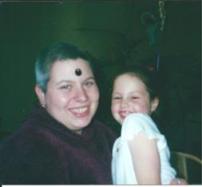
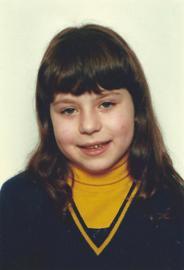
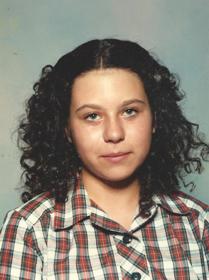
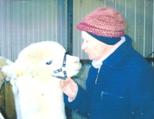
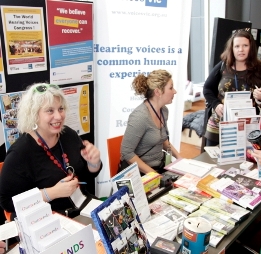
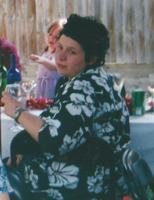
Hi Indigo
After learning about you in my recent visit to Adult Prevention and Recovery centre I have been deeply moved by your journey and hoping that by attending DBT nearing the end of my second module i can really start to explore and heal from my past.
I have had amazing support its still a bloody hard battle but people in the psych area in general can see a difference i still stuggle to see it myself and still get caught up in that negative self talk and get this feeling of being lost and helpless. I have a dog who has been my soul mate and kept me here on this earth when in times of distress and its now that he is unwell and that I know soon i will have to make that humane decision to him and gift of putting him out of his pain is where i am really struggling. I know i have to just take it all step by step but its safe to say I am shitting my pants!!
I have been forever grateful to the amazing support workers i have had even the ones i did tell to fuck off :$
Indi,
Thankyou for sharing your story – much of which I didn’t know and should have asked about. I never thought of the decision as “brave” just common sense and if its the only good decision I make in my career and my only contribution to the sector and advancing clients rights, Ill be pretty bloody happy with myself. Go forth a conquer lady.
Hi Indigo,
you are truly an inspiration and an amazing teacher. Your story is an invaluable tool for anyone with an interest in mental health issues to learn from and be guided by. Thankyou so much for allowing others to benefit by learning from your journey.
Hi Indigo,
Thankyou for your raw and honest story on your mental health and your recovery process. I completely agree that support workers need to find a balance between empowering and tough love. Recovery takes a long time and everyone has different needs and different ways of learning and that needs to be respected. At the end of the day, the client has all the answers inside him/her. They just need support to find it. Keep healthy and happy! 🙂 Sarah
Hi, Was told about you from a case worker astounded to read a simplified version of my own life but 20 years later, than your experience.
I am also very much in transition, I applaud your cause and courage to change it. I am also very interested in changing how the system works its only by talking about it and its failings that it can change with compassion, and education.
Hi
I do believe there are always reasons. DO NOT ask “What is wrong with you, but, “What has happened to you.” If only someone had asked this question to individual’s who are struggling with their mental health. I have faith in the new era we are in and the awareness of trauma, neglect and abuse to an individuals mental health.
Keep Going. You are succeeding!!!
Hi Indigo, I feel privileged and honoured to read your amazing story. It takes guts to open up and share your deepest feelings and for that I am truly thankful and inspired. As a relatively new worker in the mental health field I am mightily encouraged by your transition. I can understand your concerns regarding the terminology of ‘Recovery’ and love the way you re phrase it, life sure is MESSy for all of us. Thanks for sharing so much of yourself and your relationships. Bless your mum for praying for you, for some of us it’s our only hope. Your transitional evolution is truly inspiring and reflects a beacon of hope for those without hope. GOD bless you Indigo.
Hi David, Thank you so much for your kind words. It took me many years to be able to talk about my experiences, and it made such a difference to my recovery when I finally did. A big part of what inspired me was other people with lived experience, such as Ron Coleman, Rufus May, Jacqui Dillon, Eleanor Longden and Peter Bullimore. It is a privilege for me to be able to share my story too – and my hope in doing this is that it (a) gives others courage to do the same, (b) lets all of those struggling in silence to know they are not alone, and (c) to let workers know what is helpful for those of us stuck in the mental health health who need more than pills and activities to keep us busy – we need help to unravel our stories, make sense, be heard and validated. All the best in your work David – I am sure you will be a great support to many people. Cheers, Indigo
Hi Indigo,
I’ve really apprectiated reading the short version of your transformation story. Thank you. I’ve also printed out the ‘Coping Skills’ handout…which I think is great and will be helpful for many people I work with..Thank you 🙂
I’m wondering if I can quote you in a newsletter article I’m writing? Also, if it’s ok with you I’d like to pubish the coping skills sheet in the newsletter too?
let me know if this is not ok….it goes without saying (but I’ll say it anyway) we’ll certainly give you credit for all your work.
Have a great day,
Peta
Hi Peta,
Thanks so much for the feedback – it’s always great to know that my work is reaching people. 🙂
You’re very welcome to quote me and to publish the coping skills sheet. If the people you share it with have any feedback I’d love to hear from them too.
All the best! Indigo